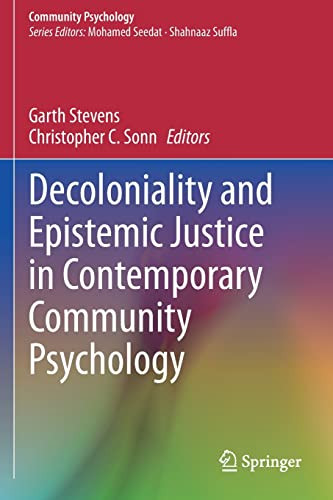Product desciption
Decoloniality And Epistemic Justice In Contemporary Community Psychology Garth Stevens by Garth Stevens, Christopher C. Sonn 9783030722227, 3030722228 instant download after payment.
This book examines the ways in which decolonial theory has gained traction and influenced knowledge production, praxis and epistemic justice in various contemporary iterations of community psychology across the globe. With a notable Southern focus (although not exclusively so), the volume critically interrogates the biases in Western modernist thought in relation to community psychology, and to illuminate and consolidate current epistemic alternatives that contribute to the possibilities of emancipatory futures within community psychology. To this end, the volume includes contributions from community psychology theory and praxis across the globe that speak to standpoint approaches (e.g. critical race studies, queer theory, indigenous epistemologies) in which the experiences of the majority of the global population are more accurately reflected, address key social issues such as the on-going racialization of the globe, gender, class, poverty, xenophobia, sexuality, violence, diasporas, migrancy, environmental degradation, and transnationalism/globalisation, and embrace forms of knowledge production that involve the co-construction of new knowledges across the traditional binary of knowledge producers and consumers. This book is an engaging resource for scholars, researchers, practitioners, activists and advanced postgraduate students who are currently working within community psychology and cognate sub-disciplines within psychology more broadly. A secondary readership is those working in development studies, political science, community development and broader cognate disciplines within the social sciences, arts, and humanities.


